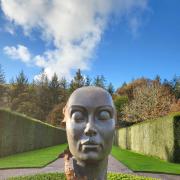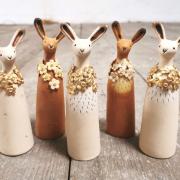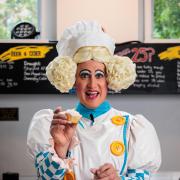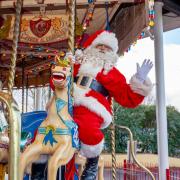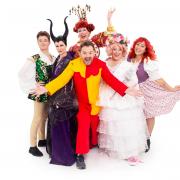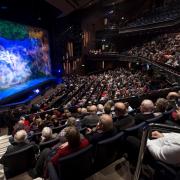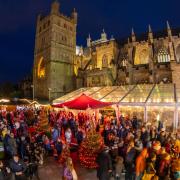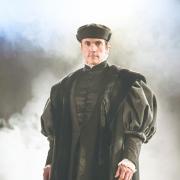PHILIP DALLING, who lives on Exmoor, brings news and features from the National Park to Devon Life readers every month. From ‘agony aunt’ to Exmoor horsewoman

The transition from the hubbub and excitement of a 1950s smoke-filled London newsroom to the stillness and invigorating breezes of North Devon is a journey that requires a substantial leap of the imagination.
It was the route taken by Helen Bingham of Outovercott, near Lynton, who gave up an intriguing job as the valued right hand of one of the magazine industry’s most celebrated ‘agony aunts’ for marriage to a pilot with the RAF Black Arrows stunt team and, subsequently, a life spent working among her beloved horses in an isolated moorland valley.
Helen,81, originally from North London, was evacuated during the Second World War to her grandparents’ home between Bath and Bristol.
“I grew up as one of twelve cousins. It was a big house, fortunately, where the adults barricaded themselves into one end and the youngsters ran riot in the other half.”
Her attraction to journalism as a career came through her mother, who made a tidy income writing stories for magazines including Women’s Own and Home Chat.
After leaving school Helen worked for a while on farms, including one owned by her cousin, the prolific children’s author Dick King Smith, and made herself proficient in shorthand and typing.
This helped to win her a job on the Bristol Evening Post. ““I was very much the junior, writing mostly about weddings and funerals. It was important to know before leaving home which sort of event I was going to cover, so that I could be sure I wore the right clothes”, Helen recalled.
Her mother’s magazine contacts helped Helen secure a job with Odhams Press, based in London’s High Holborn, working on Woman magazine, which in the early 1950s sold more than three million copies.
The building was shared with Odham’s national newspapers, the Daily Herald and the Sunday People, Sporting Life and a great variety of magazine titles. “As you can imagine, the place was very bustling, crammed with all sorts of interesting people, and very, very different from the solitude of Exmoor”, Helen recalls.
Helen began life at Woman on the letters page, then graduated to working with Evelyn Home (in real life Peggy Makins) the doyenne of a then considerable number of ‘agony aunts’ working in the women’s magazine sector.
“We received huge numbers of letters from readers, seeking advice on their lives. Many sent stamped addressed envelopes and I replied with the best guidance I could think of, as well as helping to edit the letters chosen for actual publication”, Helen remembered.
“Evelyn was very much ahead of her time, quite progressive really in terms of the era. Nevertheless, she had a stock reply to the young unmarried women who wrote saying they were expecting babies. Her advice was ‘just go along to the hospital dear, and after you have given birth they will just whip the baby away’. She knew it was an awful answer, and that times had to change, but in the context of the times it was what she had to say. It was the same if a girl wrote in and asked how she should reply to a boy who had asked her to go away for a weekend. It was always, ‘don’t even think of it dear!
“Times have certainly changed, and I think mostly for the better,” is Helen’s conclusion.
In 1956 Helen married fighter pilot Robert Bingham, a Cambridge rugby blue and member of the RAF Black Arrows display team, a predecessor to the Red Arrows. After an enjoyable spell stationed in Germany, Robert was posted to RAF Chivenor.
After her husband’s retirement from the RAF, the couple opened a guest house in Braunton, before moving to Exmoor.
She says: “It’s good to look back on enjoyable times.”









